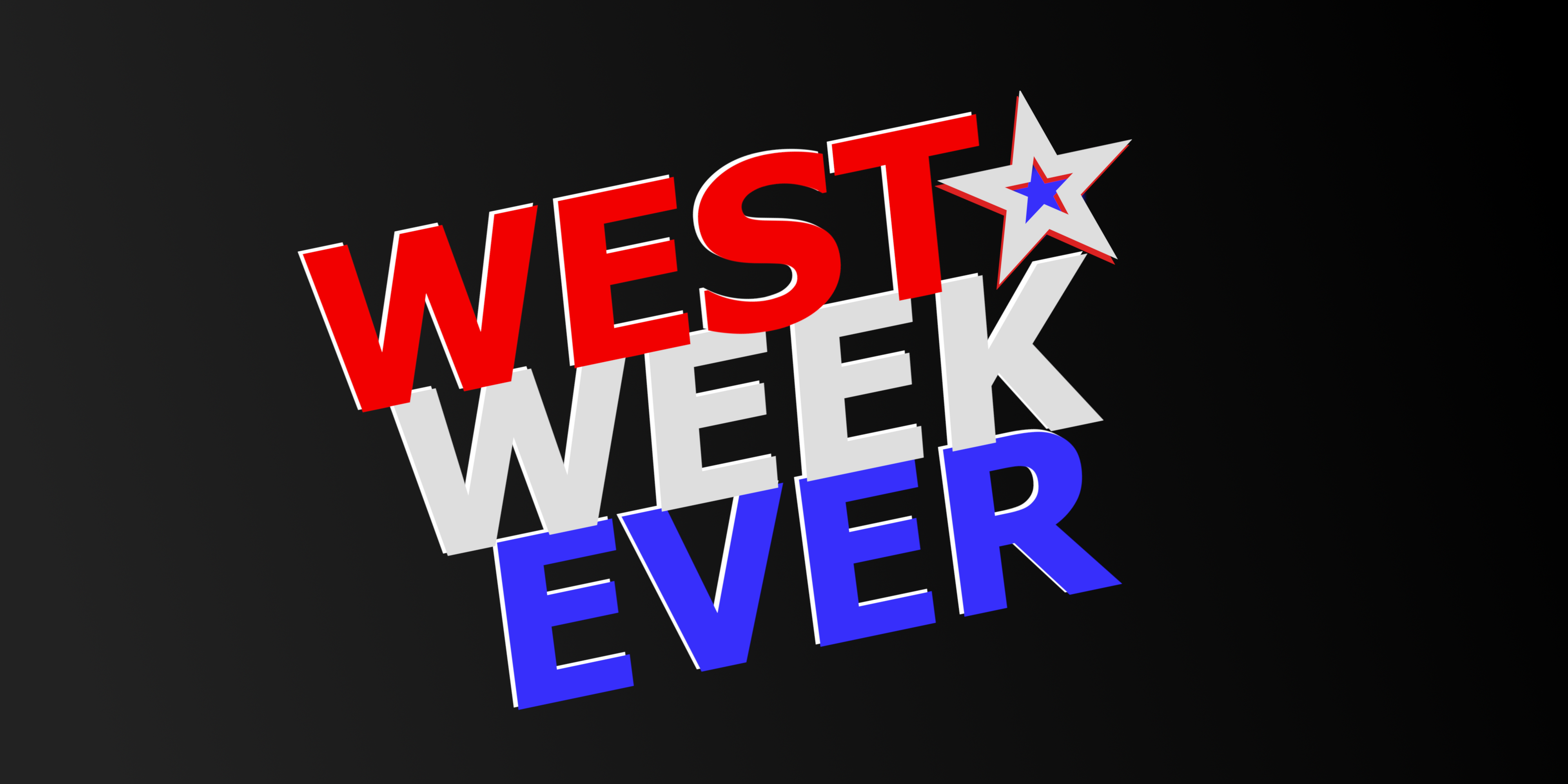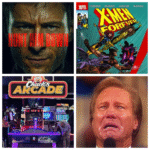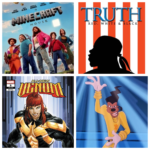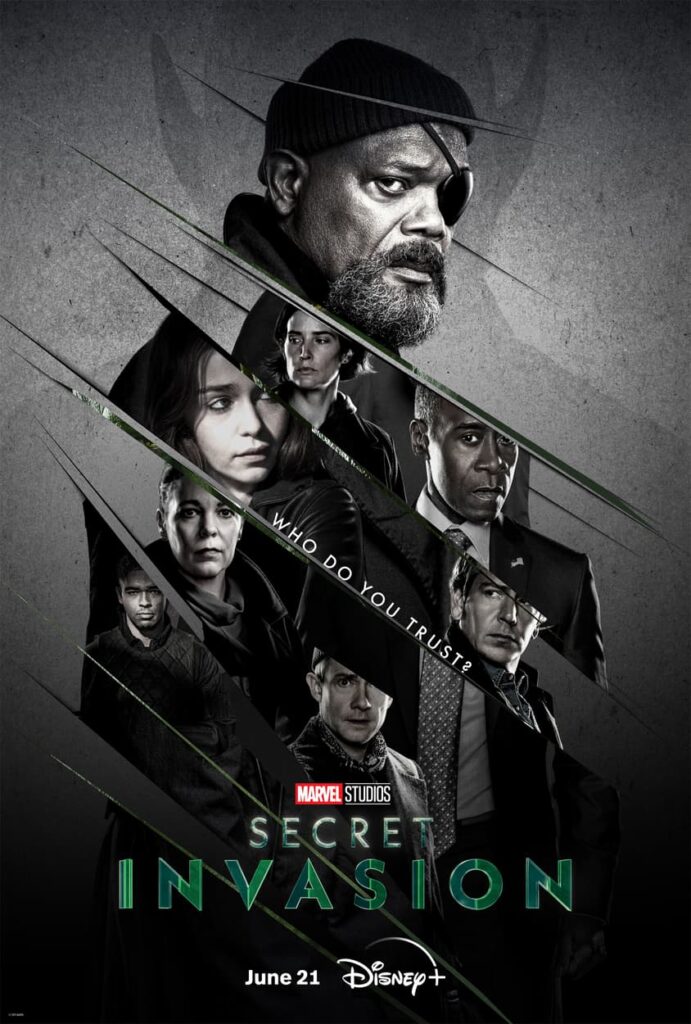
Last week saw the release of the finale of Marvel Studios Secret Invasion – the latest in Marvel Studios’ foray into television. When these Disney+ shows began, with WandaVision kicking off Phase 4 of the Marvel Cinematic Universe, we didn’t exactly know what to expect. After all, this was Marvel’s first attempt at a new format for stories set in the MCU. Since that debut series, these installments have ranged from “You’ve GOT to see this in order for future films to make sense!” to “Man, y’all think you can just plug Oscar Isaac into any old piece of crap, huh?” Seriously, Multiverse of Madness doesn’t make much sense without the foundation built by WandaVision, while Moon Knight contributed nothing of value to the rich tapestry of the MCU, despite Isaac acting his ass off for 8 episodes. Secret Invasion seems to fall somewhere in the middle, whereas it plants a few seeds that might grow later, down the road, but the characters basically end up exactly where they started, leaving this an entirely skippable enterprise.
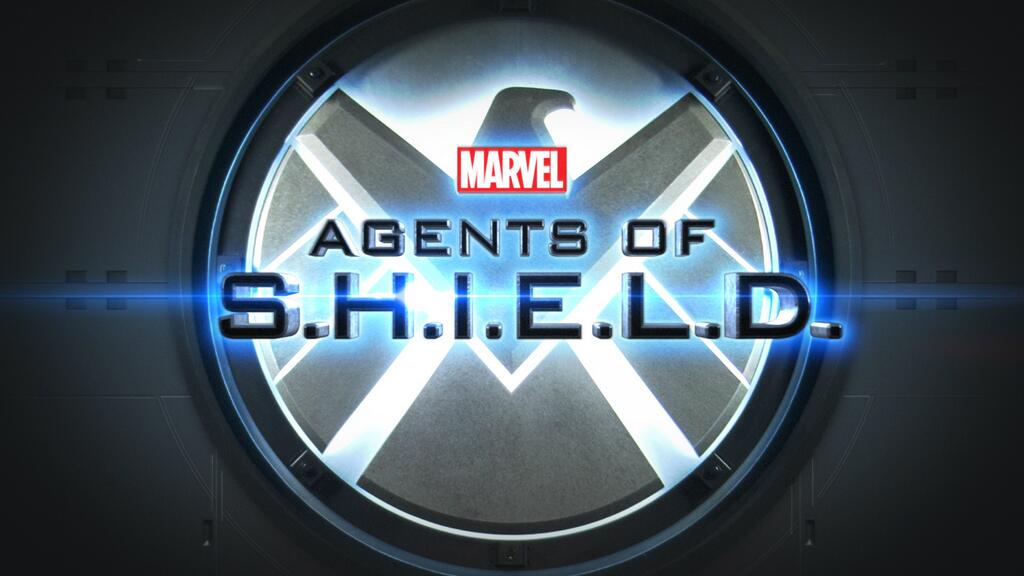
OK, let’s deal with the elephant in the room first: Yes, Marvel’s Agents of S.H.I.E.L.D. was developed to be the first television extension of the film universe, but it was created by Marvel Television (a division of ABC Studios – itself a subsidiary of Disney Television Group) and not Marvel Studios (a subsidiary of Walt Disney Studios). In fact, the television division of Marvel Studios wouldn’t even be created until after the development – and premiere – of the series. I know it’s a bit confusing, so look at it like this: They’ve all got the same daddy, but they live in different houses. Due to the rising political rivalry between both studios, the relationship wasn’t mutually beneficial. Agents of S.H.I.E.L.D. had to adapt to changes imposed by the films (such as HYDRA’s infiltration of their organization during Captain America: The Winter Soldier), while the movies pretended Agents of S.H.I.E.L.D. didn’t even exist (Remember Fury’s helicarrier, which magically appeared at the climax of Avengers: Age of Ultron? Provided by Coulson in Agents of S.H.I.E.L.D., yet not even a mention!). In the early days of the show, you got cameos by movie characters Maria Hill, Sif, and even President Matthew Ellis. By the middle of its run, the only acknowledgement that they were in the same universe was Sam Jackson’s Nick Fury would be greenscreened into a scene where it’s clear no one else was on set that day. Fans, like myself, held out hope that they were still in the same continuity, but after ignoring the events of Avengers: Infinity War, as well as pretty much anything that happened afterward, it became pretty clear that Agents of S.H.I.E.L.D. was its own thing. Regimes changed, divisions were shuttered, and Marvel Studios pulled a Thanos, and said “Fine, I’ll do it myself.”
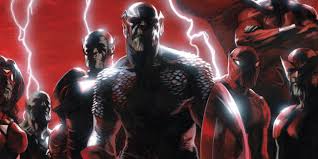
As the ninth television series set in the MCU, Secret Invasion adapts the 2008 Marvel Comics event of the same name, written by Brian Michael Bendis, with art by Leinil Francis Yu. In that story, the destruction of the Skrull homeworld leads a religious zealot to convince the Skrull refugees that Earth is destined to be their new homeworld. So, an invasion is planned at all levels, with Skrulls replacing politicians, heroes, celebrities, etc. The hook of the story was that “anyone” could be a Skrull, with the tagline “Who Do You Trust?” It’s a story concept with a lot of potential, had they been willing to take some major swings – which they weren’t. For example, it’s been said in interviews that they considered revealing that Hank Pym had been a Skrull when he infamously hit Jan Van Dyne. The Marvel team, however, decided that it would have been too much of an “easy out” for Pym, despite the fact that he’s been defined by that single moment for the past 30+ years. In true Marvel fashion, the events of Secret Invasion only served to set the stage for the next event, Siege. Sure, Spider-Man’s nemesis Norman Osborn emerged a national hero, took over S.H.I.E.L.D., renamed it H.A.M.M.E.R., and created his own team of Avengers. Still, fourteen years later, the story’s only *lasting* legacy is that it returned Mockingbird to the land of the living. Mockingbird! The hero everyone had been clamoring for…
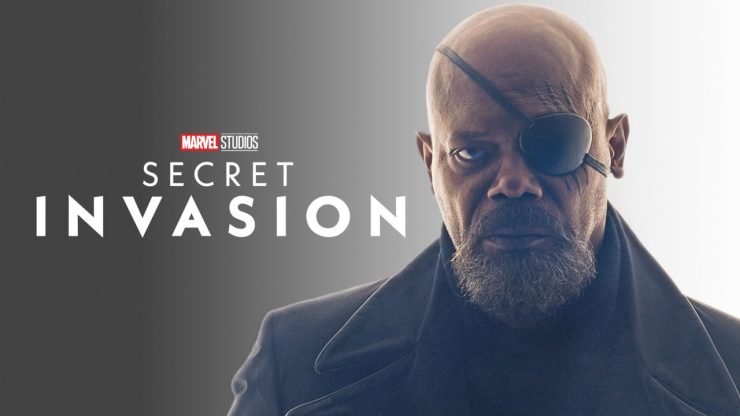
Like its print inspiration, the Disney+ adaptation of Secret Invasion had a ton of promise, but it didn’t exactly deliver on it. The show relies heavily on plot points from 2019’s Captain Marvel, which ended with Skrull refugees depending on Nick Fury to find them a new home. Since the events of that film took place roughly 30 years ago, that’s how long Fury has had a history with the Skrulls. He has spent 3 decades trying, and failing, to rehome the Skrulls, all the while using their powers and skills to enhance his spy network. Unlike comic Fury, who’s just a badass with a secret formula in his veins, MCU Fury is revealed to have basically been a career opportunist who wouldn’t be where he is without the aid of the Skrulls. I mean, Talos even points this out to him in the show. It makes sense, as 1995 Fury is just a middle-aged desk jockey with two working eyes! By the time we “meet” him in 2008’s Iron Man post credits scene, he’s a bald, one-eyed badass, wearing a duster. We haven’t seen such a transformation from a fictional Black man since Star Trek: Deep Space Nine season Season 2 Ben Sisko became Season 3 Ben Sisko!
As the series starts, Fury is called back down to Earth, from the S.A.B.E.R. space station where he’s been hiding for…reasons. They say he’s been up there for years, so I assume, after The Blip, he took a one-way trip to the stars. Anyway, he has learned that Skrulls are infiltrating different areas of the globe, seeding instability and starting conflicts, so he comes back because this one’s…personal! Yup, just like a cliché 80s movie! He goes to visit Talos, whom he’s left in charge of the Skrull situation on Earth, and he’s all “What’s happening, baby?” Talos basically tells him there’s unrest among the Skrulls, as they’re upset that there’s still no new homeworld. There’s been rebellion, with Talos losing his leadership position to a young hothead/former Fury protégé named Gravik. To Gravik and his followers, Fury broke his promise, so if there’s to be no new homeworld, then they’ll just take Earth for themselves. Fury, now, has to fix the problem he set into motion all those years ago, all the while his allies whisper about how he looks like crap and hasn’t been himself since The Blip. So, this leads to a six-episode dick measuring contest between Old Man Fury and Gravik. Can an aging Fury succeed in his “one last mission” against youth and righteous indignation? Are there any new tricks left in the old dog? Does the show even matter, since the trailer for The Marvels basically reveals he lives to “Motherfucker!” another day? Well, let’s see!
The series is full of tropes, from “Old Badass Gets Dragged Back Into The Field” to “Strained Relationship Between Father and Child” – all set against a backdrop of international intrigue. Sounds sexy, right? Well, not to many fans. You see, at the end of the day, the source material for this thing is comic books, so people expected at least a modicum of explosions and heroics. The problem is that James Bond and Jason Bourne have colored the public’s perception of “spy stuff”, when actual espionage ain’t that sexy. This series tried to play a story about asylum-seeking extraterrestrials as straight as it possibly could – probably to its detriment. It only vaguely touches on the aspects of xenophobia and paranoia at play, and drills its focus down specifically to Fury. The first half of the series is basically a character study of watching an old man keep getting knocked down, with little will to get back up. They hint at a major event that made him leave Earth, seemingly permanently, but that revelation never really comes. There’s no discernable turning point in the middle that inspires him to forge on to the end.
I mean, pacing-wise, the series is all over the place! The premiere ends with a shocking, yet very unnecessary death, seemingly setting the tone for the rest of the series. Not so, however! If anything, the way the death was treated made it feel like contract renegotiations had fallen apart between the actor and Marvel Studios, and this was the result. It carried very little emotional weight, and feels like they simply threw away a good character just to have a *death* – ya know, kinda like how a Marvel comic would have handled it! Like many have said, this didn’t have to be a 6-episode miniseries, as the major points could have been hit in a feature-length film – especially since MCU films routinely clock in around 2 and a half hours now.
Many of the new characters introduced didn’t exactly serve the story well. President Ritson didn’t really have “presence”, but neither did President Ellis, so I guess that tracks. I didn’t like this character, though, for selfish reasons. If you go back to the very beginning of Phase 4, you’ll notice that they’re very cagey about who’s in the Oval Office at that time. Take Falcon and the Winter Soldier, for example: there are several points in that series where it would be logical for the President to make an appearance, yet we ended up getting some other member of the administration instead. Considering Ellis was in office during Iron Man 3, there’s no way he would have been around post-Blip – even if he avoided being Blipped in the first place. So the status of the Executive Branch is just sort of danced around from project to project, with Ritson first mentioned during Black Panther: Wakanda Forever, and debuts in the flesh here. Prior to this reveal, I had a theory that General Thaddeus “Thunderbolt” Ross was actually President, the former US Secretary of State having won on a platform bolstered by his role in the creation of the Sokovia Accords. Considering Marvel went to the trouble of recasting the role after William Hurt’s death, it implied there were big plans for the character. Most fans are insisting he will become Red Hulk – as he did in the comics – but I still think his future lies in the Big Chair. In fact, Secret Invasion sort of set the table for that at the very end, when Fury told Ritson that he was taking the actions of a “one-term president”.
Another new character we’re supposed to care about is Varra/Priscilla, who is revealed to be Fury’s Skrull wife (!). Despite their very Mr. & Mrs. Smith rapport, they seem to love one another because they’re both warriors, fighting for their people. While this is meant to show us another side of Fury – his humanity, perhaps – I felt this plot point neutered him just as much as the revelation that his entire spy career had been advanced through help of the Skrulls. All this time, when the battle was over, and Fury went slinking back into the shadows, we were left to believe he was off doing “S.H.I.E.L.D. shit”. Instead, he was sneaking home, “playing house” with his alien wife. Yes, I put some “stank” on the alien part there, as I think this would be a VERY big deal to someone like Fury, and it’s not handled as well as it could have been. They do touch on the fact that Varra remains in her Priscilla form when he is around because she doesn’t believe that he would love her in her true form. Given what we know about Fury, she’s RIGHT! Instead of confronting that head-on, however, Fury kinda hems and haws, dodging the subject. All I wanted to hear was a simple “It weirds me out when you’re GREEN!” The series ends with the two of them, beaming up to beaming up to S.A.B.E.R., prepared to tackle whatever comes…together. Awww! Actually, NO! Nick Fury is a one-man wolfpack, and this series basically undid a bunch of preconceived notions that the audience had, which were necessary to create his character, his LEGEND. He’s not meant to have an “arc”. He came into this fight alone, and he is meant to leave it alone. He does not live happily ever after with Great Value Dark Aunt Viv. Even worse, we don’t see the return of the Fury that we’ve come to recognize.
Now, a few quick hits on other new characters:
- Emilia Clarke’s Gi’ah didn’t really do much for me, nor did her Daddy Drama with Talos. I understand why she was necessary for the finale, but I could have done without most everything else about her. I feel like something else, something better, could have been done with her, and I almost wish she had turned out to be the MCU’s *official* Quake. Almost.
- Olivia Colman was quite the “get” in her role as Sonya Falsworth. She seemed like she was having a lot of fun, and brought a sense of gravitas that isn’t common in this setting. I hope we see her again, but this felt like she was just “taking a holiday” before taking on a meatier “acting” role.
- Not necessarily “new”, but I guess it was nice to see O-T Fagbenle’s Rick Mason from Black Widow. Still, I feel like that cameo was supposed to land harder than it did. I was just like “OH! It’s…that guy.”
When Fury and Talos are reunited at the beginning of the series, you begin to see the affinity they have for one another. Over the past 30 years, they have essentially become brothers, both seeking to protect their people. Talos wants to protect his fellow Skrulls, but also believes that, through service to the humans, the Skrulls will convince them that they come in peace, with everyone coexisting in harmony. Fury, on the other hand, wants to protect humanity, as well as his adopted charges the Skrulls, but he doesn’t believe coexisting is a viable option. Look at that – They snuck Xavier and Magneto into the MCU and we didn’t even know it! These conflicting views make for a great buddy cop dynamic, and a bromance arises. I mean, prior to this series, it’s is somewhat implied that Fury trusts Talos, simply due to the fact that he trusts Talos to pose as him on Earth (during Spider-Man: Far From Home), and Fury doesn’t trust anyone. Still, that reveal came out of nowhere, so what we see here really adds some context as to the nature of their relationship. What they have is kinda beautiful, so that’s what makes it so maddening how things are handled when Talos is killed in battle. We can get into the minutiae of how Fury chose country over friendship, but he just left his friend’s body right there. And really didn’t take any time to mourn him or anything. He runs off, catches his breath, and ends up running into Gi’ah. In that exchange, however, he somehow passes his grief, as well as the matter of handling Talos’s affairs, off to her. If we’re to accept that Fury is this cold, heartless man who eschews attachments, then that means the Varra situation ALSO shouldn’t work. If anything, what he had with Talos felt more natural than the poorly handled, and tacked on, Varra relationship, so it comes off like they were just desperate to include a love interest.
I don’t want you to think it’s all bad, however, as I actually really enjoyed watching this series. Why? Well, it’s because EVERYONE ACTED THEIR ASSES OFF! Seriously, there is some incredible character work on display in every episode. The racially-charged conversation between Fury and “Skrhodey” in the restaurant? *chef’s kiss* The poetry discussion – and its reprise – between Fury and Varra. Beautiful! Even Gravik’s Villain Speech. Powerful! Gravik is right! Talos was weak, if what you’re looking for is war. That wasn’t Talos’s aim, but his approach wasn’t working. Gravik knew he had done bad things – things he had been trained to do BY Fury – but he was doing them for good reasons. Fury DID fail the Skrulls. 30 years and no new home. Varra was right! Fury would have had trouble dealing with her true form, but it was something he’d have to confront if they were to work. All of these interactions came from places of truth and conviction and it always showed onscreen. The Secret Invasion comic was written by Brian Michael Bendis, who’s always been known for his dialogue. Some fans might say his characters talk too much. Still, based on the dialogue on display in this series, it’s clear that it was truly inspired by how Bendis approached it in print. I’ve had my personal issues with Bendis, but have always loved his dialogue, which is probably why I enjoyed this series’ character interactions so much.
Super Pro: Don Cheadle must have had a blast playing “Skrhodey”, as he stole every scene he was in. We’ve seen so many different approaches to James Rhodes over the years (military man, cop partner, and now bureaucrat) , which is how this was able to work so well. Rhodes is a character who’s constantly evolving, so you can buy that this is how Government Rhodes would act just as much as you buy “Oh, Rhodey’s a Skrull!” The reveal doesn’t come as a shock so much as a release; once Rhodey knows Fury (and the audience) knows he’s a Skrull, then the party really gets started. It’s a shame we only got this Rhodes for one outing, but who knows which Rhodes we’ll get next? After all, we don’t know how long it’s been since he was replaced. When he’s released from captivity, he’s in a hospital gown. Some fans have taken this to mean he was swapped while in the hospital for his Captain America: Civil War injuries, which would mean he’s been a Skrull for the past SEVEN YEARS. If true, it’ll be interesting to see how the Real Rhodes handles that. Think of all he missed – especially Tony’s death.
Super Con: Anything that involved actual powers was horrible. The Groot powers, the final Super Skrull battle, etc. Apparently, this show had a $200 million budget, but I guess Disney got tired of all the smoke they were getting for their treatment of FX artists, so they farmed it out to some college kids. In particular, the cold open that depicted Gi’ah’s resurrection felt like it was lifted directly from the aforementioned Agents of S.H.I.E.L.D. and not something that had Mickey’s actual blessing. As I said before, the series doesn’t do a great job handling the fact that it’s set against a backdrop of Supers. If anything, the MCU connection is to its detriment. As a series starring Samuel L. Jackson as Old Black Spy taking down the protégé he built up, it works. But in the context of the MCU, revealing that The Great Nick Fury is merely Just A Man, it does more damage than good. If they were winding down the MCU, then something like this might be OK. Pulling back the curtain on how things worked the whole time. Hell, even as Fury’s final mission, it would work. But they lied! This wasn’t his “final mission”, despite the marketing. Even if you hadn’t been spoiled by his presence in, now, two different trailers for The Marvels, the series itself ends very much on the note of A New Beginning than an Ending. Some might argue that Fury had to go through the events of the series to get here, but I’d argue that he didn’t.
I enjoyed the Hell out of Secret Invasion, but I’m also a huge proponent of worldbuilding. Through that particular lens, this series contributed little of value. Sure, some characters are dead, while others can resume their Skrull-stolen lives but, for the core character, he ends up pretty much where he began. Fury is still old and unsure of his place in everything, but now he’s got his Woman riding shotgun, so he’ll get through it (*eyeroll emoji*). Was his unnamed existential crisis wrapped up in the fact that he failed the Skrulls OR was it based on his discovery, via The Blip, that there were simply some things that even The Great Nick Fury – the man with for plan for everything – would be powerless to stop? Both could be true, but neither really emerges as the “victor”.
Also, the bread and butter of the MCU is that small things lead to big things, culminating in an Avenger-level threat. From a business standpoint, you’re not putting the Avengers on television (even streaming), unless it’s Ruffalo or something. So, they failed to make the creative side match the business side, in that they never provide a credible reason as to why the Avengers don’t get involved other than “It’s personal!” Hell, the man has their DNA on file, which I’m sure they would not be cool with, so just acknowledge that Fury’s simply covering his ass from a confrontation he’s not prepared to have yet. To not do that just feels lazy.
Going back to the business side of things, I think Marvel Studios has somewhat hit their stride with these shows, even if I don’t like it. At the end of the day, they’re providing content to tide over the audience until the next film. Never allow any down time! Don’t give the audience a minute to breathe! This was especially the marching order during the Chapek Era at Disney, but things seem to be slowing down to a more palatable pace now that Iger is back in charge. No major beats or strokes can take place in these shows, as not everyone has Disney+, and you don’t give away the farm unless you can get box office gross out of it. Ultimately, give the semblance of change, without providing actual change. This is exactly how the publishing side of Marvel is handled, so maybe the divisions aren’t so different after all. Based on this model, Secret Invasion did exactly what it set out to do, and it’s the audience that’s going to have to adjust to the way “business is done” going forward.
